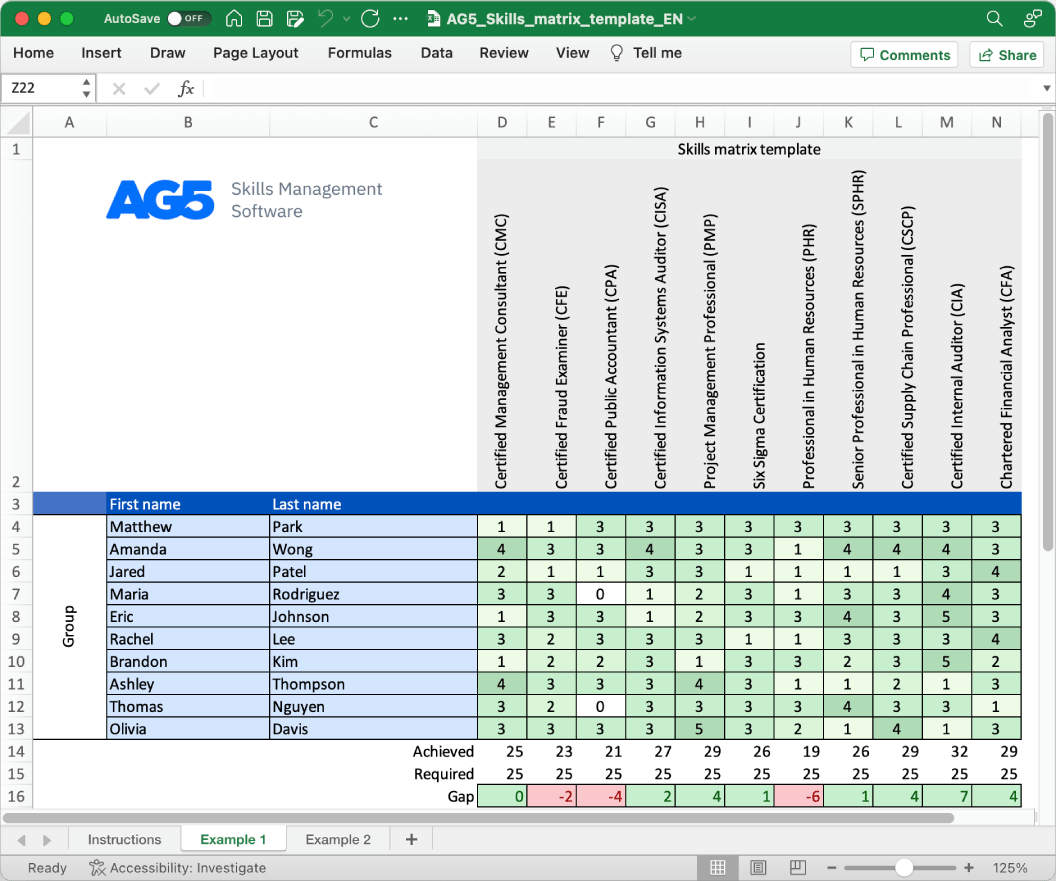Civil engineering skills matrix template
A skills matrix template is a tool that can be used in the civil engineering to effectively manage and assess the skills and knowledge of individual employees or teams.
Download your free template here

Overview Copied
With our free civil engineering skills matrix template, you will receive a clear overview of the skills that are present in your organization, as well as those that are missing. Using this information, you can develop and implement a plan to ensure that your employees’ skills are up to date, comprehensive, compliant, and ready for the future.
- Professional Engineer (PE)
- Engineer in Training (EIT)
- Leadership in Energy and Environmental Design Accredited Professional (LEED AP)
- Project Management Professional (PMP)
- Certified Construction Manager (CCM)
- Certified Professional Constructor (CPC)
- Building Design and Construction Systems (BDCS)
- Structural Engineering (SE)
- Construction Documents Technologist (CDT)
- Certified Bridge Safety Inspector (CBSI)
- Certified Floodplain Manager (CFM)
- Geotechnical Engineering (GE)
- Water Resources Engineering (WRE)
- Traffic Operations Engineer (TOE)
- Transportation Planning Professional (TPP)
- Certified Municipal Engineer (CME)
- Certified Energy Manager (CEM)
- Certified Commissioning Professional (CCP)
- Professional Traffic Operations Engineer (PTOE)
- Stormwater Manager (SWM)
Benefits Copied
Skills management software helps civil engineering organizations ensure employees possess the necessary skills and ceritications to keep projects running smoothly, safely, under budget and on deadline. Additionally, skills management software can facilitate succession planning and talent development, helping organizations to identify and groom high-potential employees for leadership roles.
Author Copied
Revisions Copied
Use AG5 to identify skill gaps
Say goodbye to Excel matrices. Start using AG5’s plug and play skill matrix software.
ISO27001 certified Free trial available
